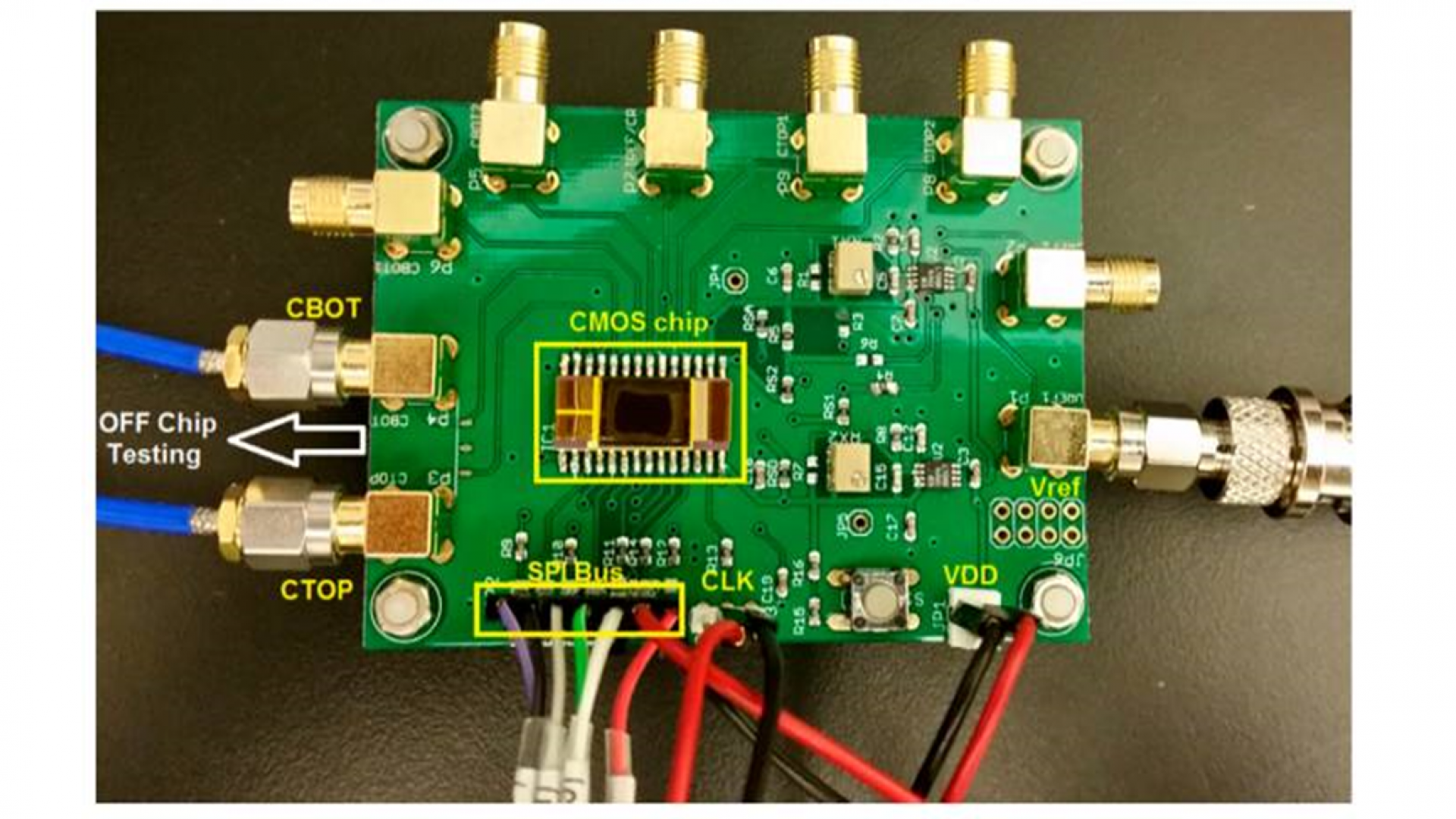Abdulaziz Alhoshany, et al., " A biosensor-CMOS platform and integrated readout circuit in 0.18-μm CMOS technology for cancer biomarker detection". Sensors, 17(9), 2017, 1942.
This paper presents a biosensor-CMOS platform for measuring the capacitive coupling of biorecognition elements. The biosensor is designed, fabricated, and tested for the detection and quantification of a protein that reveals the presence of early-stage cancer. For the first time, the spermidine/spermine N1 acetyltransferase (SSAT) enzyme has been screened and quantified on the surface of a capacitive sensor. The sensor surface is treated to immobilize antibodies, and the baseline capacitance of the biosensor is reduced by connecting an array of capacitors in series for fixed exposure area to the analyte. A large sensing area with small baseline capacitance is implemented to achieve a high sensitivity to SSAT enzyme concentrations. The sensed capacitance value is digitized by using a 12-bit highly digital successive-approximation capacitance-to-digital converter that is implemented in a 0.18 μm CMOS technology. The readout circuit operates in the near-subthreshold regime and provides power and area efficient operation. The capacitance range is 16.137 pF with a 4.5 fF absolute resolution, which adequately covers the concentrations of 10 mg/L, 5 mg/L, 2.5 mg/L, and 1.25 mg/L of the SSAT enzyme. The concentrations were selected as a pilot study, and the platform was shown to demonstrate high sensitivity for SSAT enzymes on the surface of the capacitive sensor. The tested prototype demonstrated 42.5 μS of measurement time and a total power consumption of 2.1 μW.
